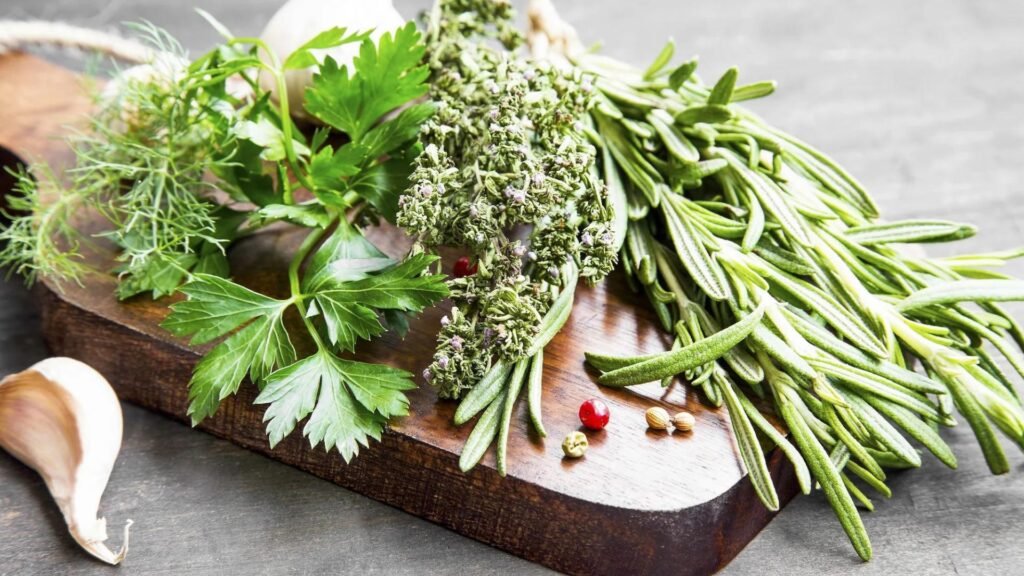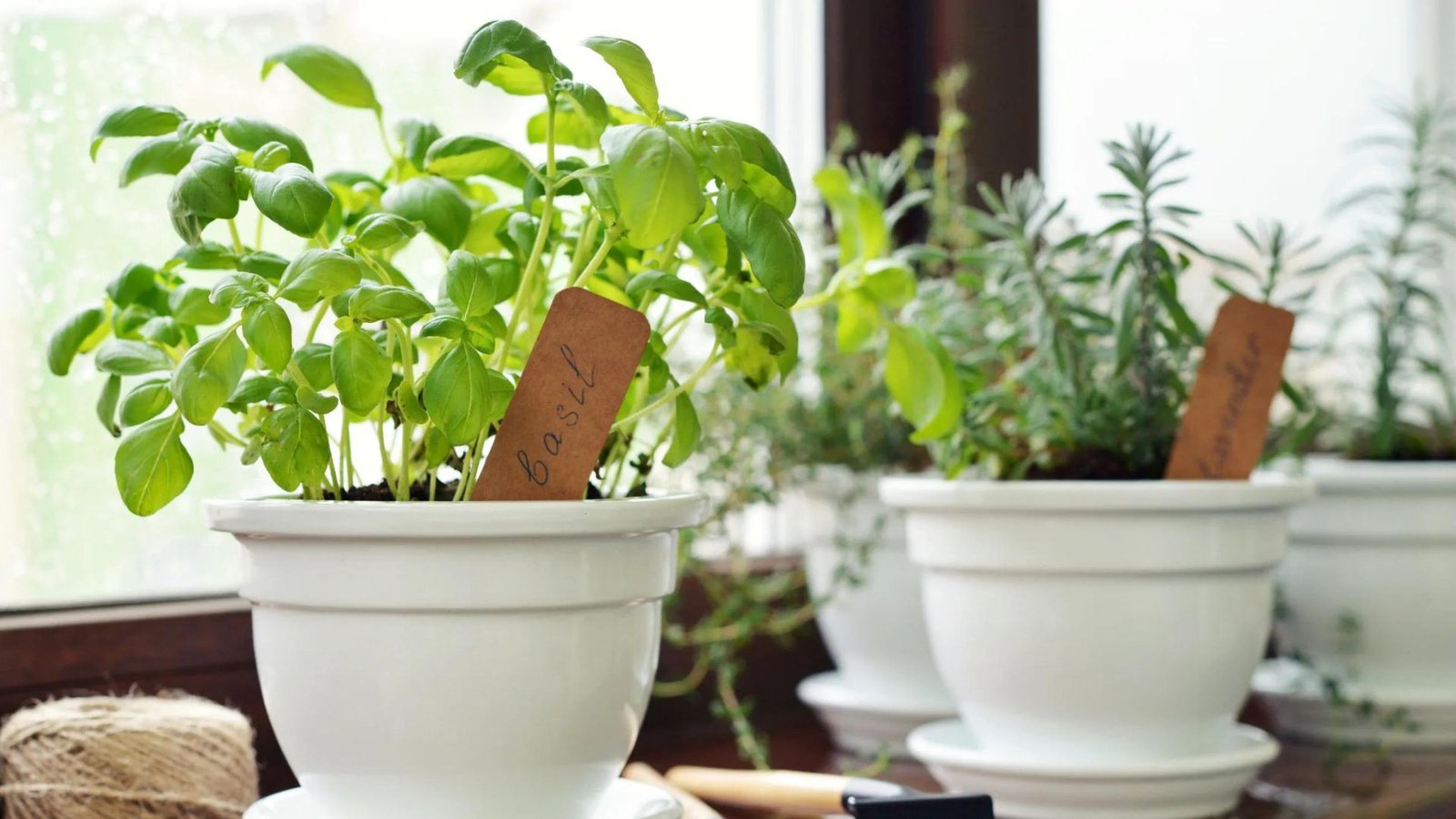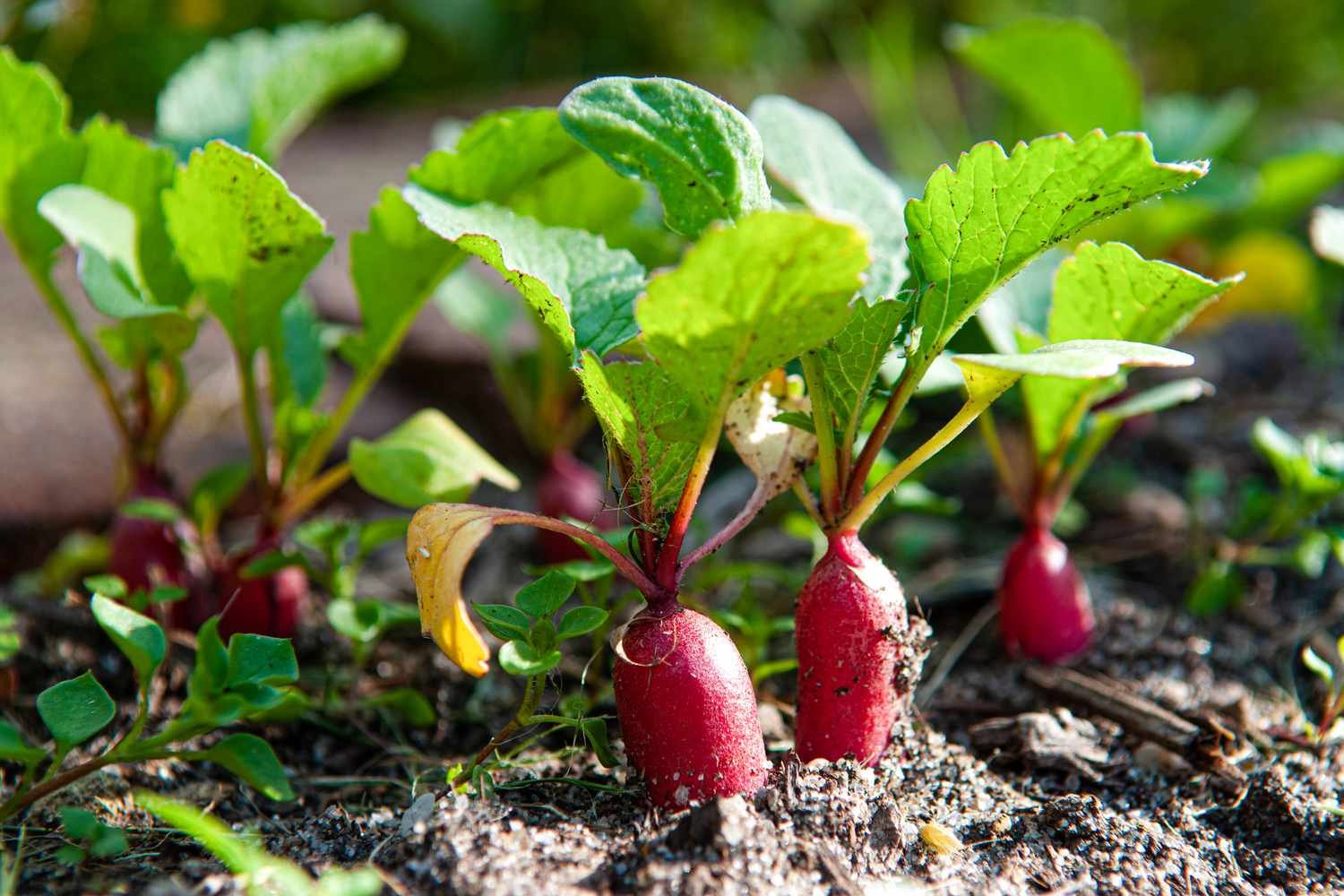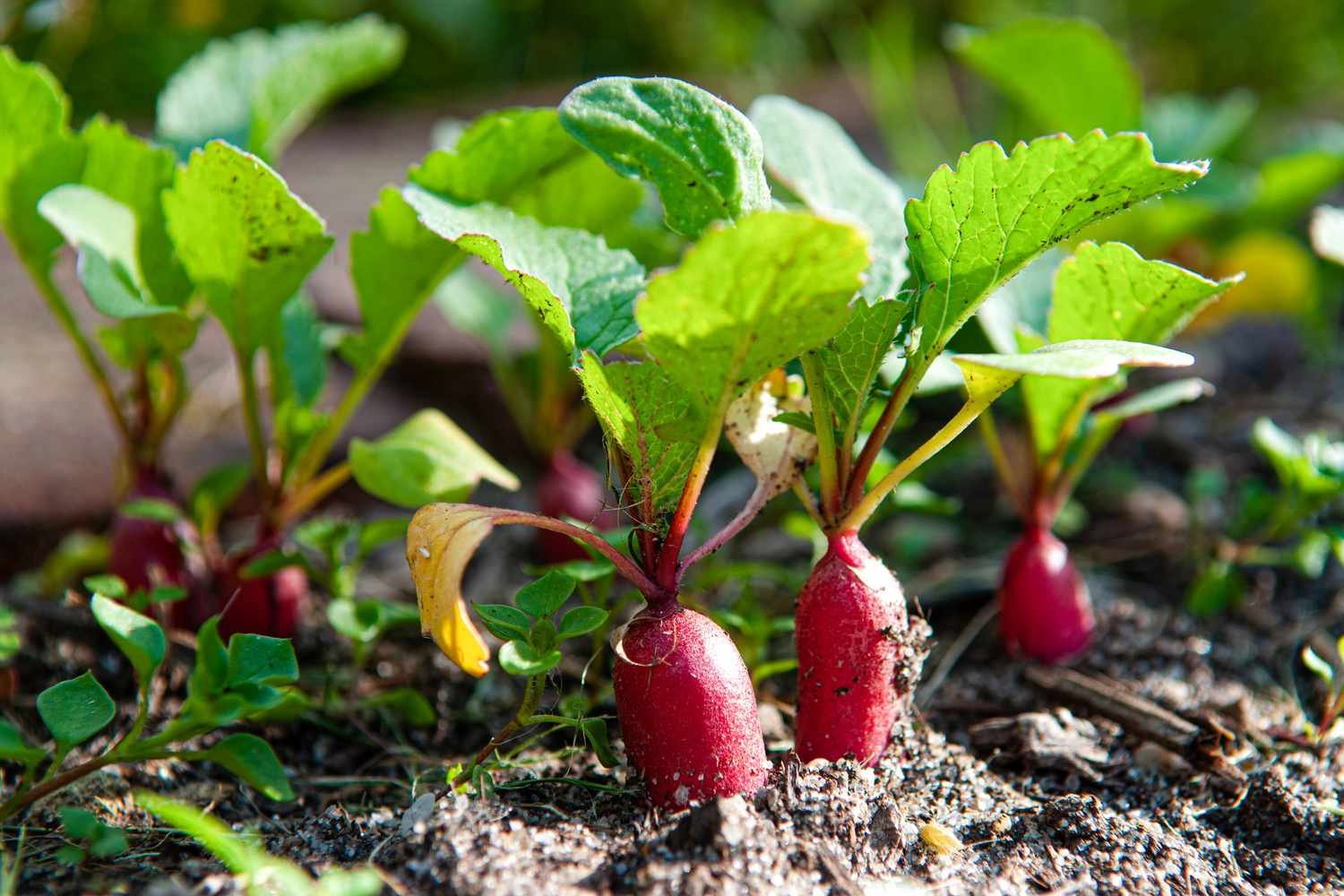Herbs are a wonderful way to elevate the flavors of your dishes. Growing your own culinary herbs ensures you have fresh, aromatic ingredients on hand. Here’s a guide to the best herbs for culinary use, along with tips on how to grow and use them.

Basil
Flavor Profile
Basil has a sweet, slightly peppery flavor with hints of mint and clove. It’s a key ingredient in many Italian dishes.
Uses
- Pesto: Blend fresh basil leaves with garlic, pine nuts, Parmesan cheese, and olive oil.
- Salads: Tear fresh leaves and add to caprese salads with tomatoes and mozzarella.
- Pasta: Add to pasta sauces for a burst of fresh flavor.
Growing Tips
- Sunlight: Needs full sun.
- Watering: Keep the soil consistently moist.
- Harvesting: Pinch off leaves regularly to encourage bushy growth and prevent flowering.
Rosemary
Flavor Profile
Rosemary has a strong, pine-like flavor with hints of citrus and evergreen. It’s commonly used in Mediterranean cuisine.
Uses
- Roasted Meats: Use sprigs to flavor roasted chicken, lamb, or pork.
- Breads: Add chopped rosemary to bread doughs for an aromatic loaf.
- Potatoes: Sprinkle over roasted or mashed potatoes.
Growing Tips
- Sunlight: Requires full sun.
- Watering: Let the soil dry out between waterings.
- Harvesting: Snip off stems as needed, but don’t cut more than a third of the plant at once.
Thyme
Flavor Profile
Thyme has a subtle, earthy flavor with floral and peppery notes. It’s versatile and used in a variety of cuisines.
Uses
- Soups and Stews: Add sprigs to soups, stews, and broths for a depth of flavor.
- Marinades: Mix with olive oil, lemon juice, and garlic for a flavorful marinade.
- Vegetables: Toss with roasted vegetables like carrots and potatoes.
Growing Tips
- Sunlight: Prefers full sun.
- Watering: Allow the soil to dry out between waterings.
- Harvesting: Cut stems just before the plant flowers for the best flavor.
Mint
Flavor Profile
Mint has a cool, refreshing flavor with a hint of sweetness. It’s commonly used in beverages and desserts.
Uses
- Teas: Steep fresh leaves in hot water for a soothing tea.
- Salads: Add chopped mint to fruit salads for a refreshing twist.
- Sauces: Use in sauces like mint chutney or mint yogurt sauce.
Growing Tips
- Sunlight: Prefers partial shade.
- Watering: Keep the soil moist.
- Harvesting: Pick leaves regularly to encourage new growth, but beware it can spread aggressively.
Parsley
Flavor Profile
Parsley has a clean, slightly peppery taste with a hint of earthiness. It’s often used as a garnish but also adds flavor to dishes.
Uses
- Garnish: Sprinkle chopped parsley over soups, stews, and pastas.
- Salads: Mix into tabbouleh or other grain-based salads.
- Sauces: Blend into chimichurri or pesto.
Growing Tips
- Sunlight: Needs full sun to partial shade.
- Watering: Keep the soil evenly moist.
- Harvesting: Snip off stems from the outer edges of the plant.
Cilantro
Flavor Profile
Cilantro has a bright, citrusy flavor with a slightly peppery undertone. It’s widely used in Mexican, Indian, and Asian cuisines.
Uses
- Salsas: Chop fresh cilantro and mix into tomato or mango salsa.
- Curries: Add to curries and soups for a fresh finish.
- Guacamole: Stir chopped leaves into guacamole for added flavor.
Growing Tips
- Sunlight: Prefers full sun to light shade.
- Watering: Keep the soil consistently moist.
- Harvesting: Cut leaves as needed, starting with the outer leaves.
Oregano
Flavor Profile
Oregano has a robust, slightly bitter flavor with peppery and minty notes. It’s a staple in Italian and Greek cooking.
Uses
- Pizza: Sprinkle dried or fresh leaves over pizza.
- Pasta Sauces: Add to tomato-based sauces for extra depth.
- Marinades: Use in marinades for meats and vegetables.
Growing Tips
- Sunlight: Needs full sun.
- Watering: Let the soil dry out between waterings.
- Harvesting: Harvest leaves just before flowering for the best flavor.
Conclusion
Growing your own culinary herbs is a fantastic way to ensure you have fresh, flavorful ingredients at your fingertips. These herbs are easy to grow and can significantly enhance your cooking. Start with a few of your favorites and enjoy the delicious difference they make in your dishes. Happy cooking!











